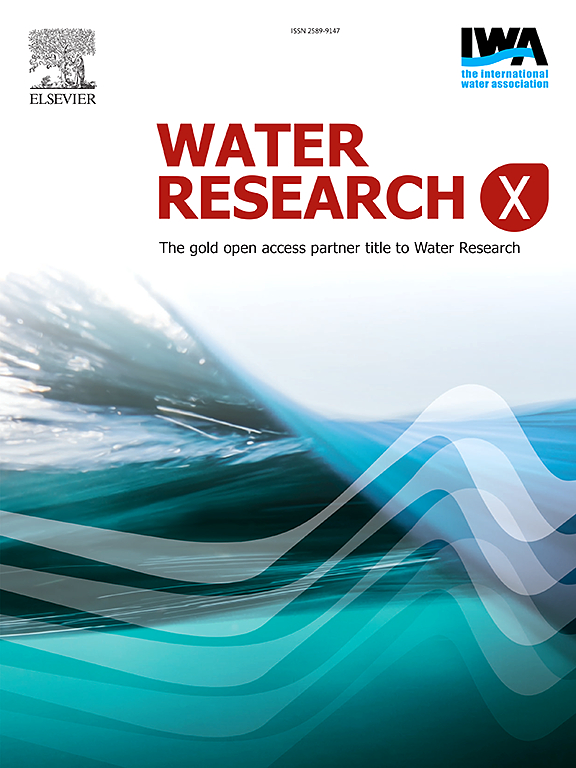Balancing energy recovery and direct greenhouse gas emissions in wastewater treatment
IF 8.2
2区 环境科学与生态学
Q1 ENGINEERING, ENVIRONMENTAL
引用次数: 0
Abstract
Achieving net-zero emissions is a critical goal for the water industry. This study provides a comprehensive evaluation of energy recovery and direct greenhouse gas (GHG) emissions from a full-scale wastewater treatment plant (WWTP), highlighting the important balance between carbon capture and emissions reduction. Long-term monitoring results revealed that upstream carbon capture, while recovering significant energy for carbon offset (40 % of total emission), stimulated downstream nitrous oxide (N2O) emissions, a major contributor to Scope 1 emissions. In response, integrated mitigation strategies were developed using mechanistic modelling, incorporating process optimizations (adjusting split ratios, DO setpoints, and mixing ratio) and retrofitting solution (raw wastewater diversion). The identified strategies reduced N2O emissions by 50 % and the overall carbon footprint by 40 %, despite a 31 % decrease in energy recovery, compared with the baseline case (N2O emission factor: 1.31 % of TKN load, net emissions: 354.29 kg CO2-e/ML, and energy recovery: 386.02 kg CO2-e/ML). The findings demonstrated the need for a holistic assessment of carbon capture, energy recovery, and GHG emissions across the entire treatment process. The outcome offers actionable insights for improving WWTP operations towards net-zero emissions.

平衡废水处理中的能源回收和直接温室气体排放
实现净零排放是水务行业的一个关键目标。本研究提供了一个完整的污水处理厂(WWTP)的能源回收和直接温室气体(GHG)排放的综合评估,强调了碳捕获和减排之间的重要平衡。长期监测结果显示,上游碳捕集在回收大量能源用于碳抵消(占总排放量的40%)的同时,刺激了下游氧化亚氮(N2O)的排放,这是第一类排放的主要来源。为此,研究人员利用机械模型制定了综合缓解策略,包括工艺优化(调整分流比、DO设定值和混合比例)和改造方案(原废水改道)。与基线情况(N2O排放系数:TKN负荷的1.31%,净排放量:354.29 kg CO2-e/ML,能量回收率:386.02 kg CO2-e/ML)相比,确定的策略减少了50%的N2O排放和40%的总碳足迹。研究结果表明,需要对整个处理过程中的碳捕获、能源回收和温室气体排放进行全面评估。研究结果为改善污水处理厂的运营以实现净零排放提供了可行的见解。
本文章由计算机程序翻译,如有差异,请以英文原文为准。
求助全文
约1分钟内获得全文
求助全文
来源期刊

Water Research X
Environmental Science-Water Science and Technology
CiteScore
12.30
自引率
1.30%
发文量
19
期刊介绍:
Water Research X is a sister journal of Water Research, which follows a Gold Open Access model. It focuses on publishing concise, letter-style research papers, visionary perspectives and editorials, as well as mini-reviews on emerging topics. The Journal invites contributions from researchers worldwide on various aspects of the science and technology related to the human impact on the water cycle, water quality, and its global management.
 求助内容:
求助内容: 应助结果提醒方式:
应助结果提醒方式:


